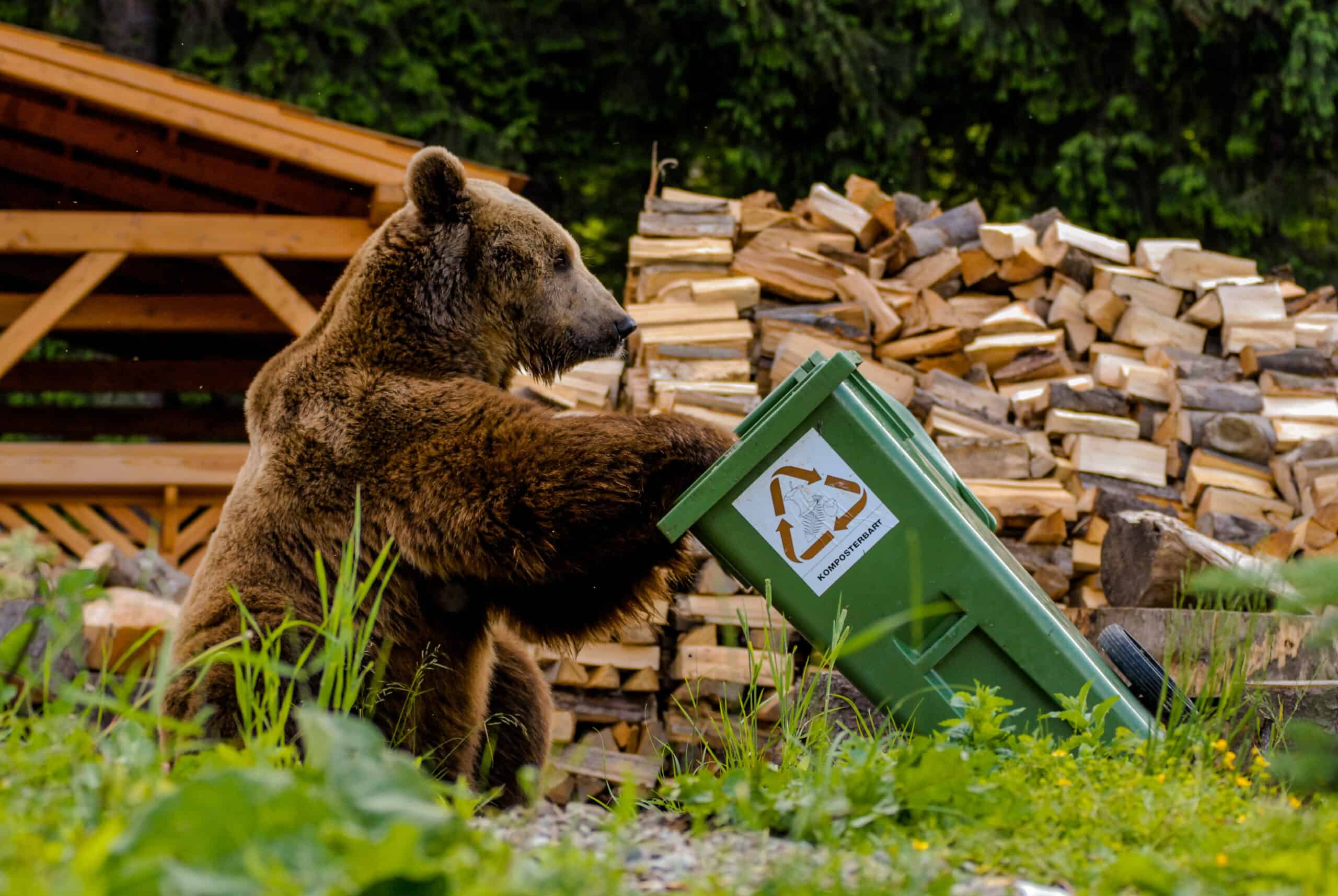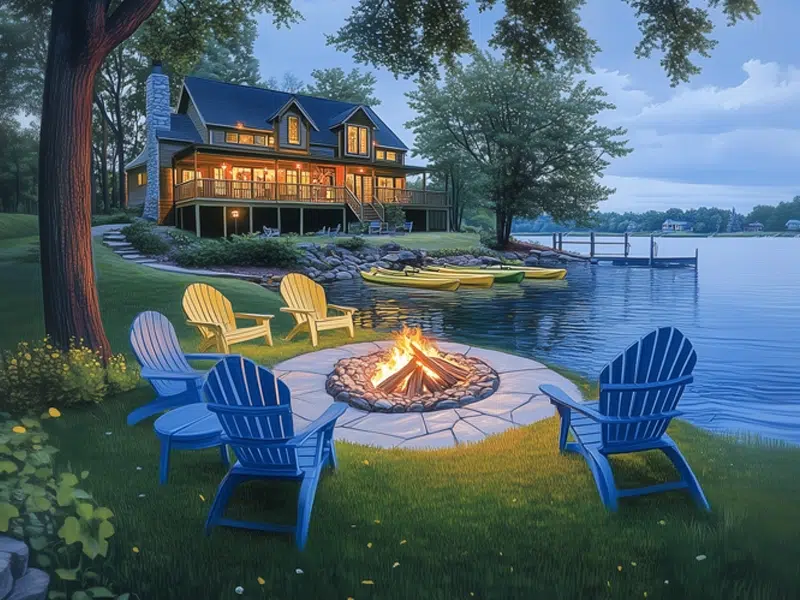Wildlife Safety at Your Vacation Rental
Is your short-term rental a hot commodity because nature is right outside the backdoor? Guests enjoy staying at a remote vacation rental location to escape from their normal bustling city life. With wildlife in your backyard, many animal liability concerns can arise and it’s important to minimize those risks and make sure that your current insurance policy would cover you if something were to happen to a guest.

Why Should I be Concerned with the Wild Animals Surrounding my Rental Location?
Many times, people travel to remote locations in hopes of seeing wildlife in their natural element but aren’t prepared if there is an unwanted run-in. Guests who choose to rent out a remote vacation rental, usually don’t have much experience with being around wild animals because they are most likely coming from the suburbs or cities, so they don’t normally interact with wildlife.
Some might even become tempted to interact or feed the deer that’s just a couple of yards away and the next thing they know it’s chasing after them. Wild animal attacks and injuries while exploring in the wild aren’t very common but the few attacks that do happen are mainly due to foolish actions on the human’s part.
As a short-term rental host, it’s important to inform the guests of the potential wild animal concerns that they could encounter during your stay, so you can avoid any animal liability risks.
Wildlife Safety Tips for Your Vacation Rental
Ensure a Safe Stay for Your Guests
While you can’t control the wildlife around your rental, you can take steps to prevent unwanted encounters with your guests. Your guests are trusting that you have rented them a safe place to stay and it’s important to follow through on this trust and avoid any animal liability issues. Here are a few steps to ensure a safer rental and stay for your guests:
Provide a Wildlife Safety Document in the Rental Agreement
This is a great way to ensure that your guests are informed of the potential wildlife risks that can be found around your rental and minimize the animal liability risks that could arise. This document would let guests know what animals they could encounter at their stay and what to do in a situation where they have been approached by one of those animals. In 2016, a Nebraska family was taking a walk around their hotel in Orlando, Florida, when their two-year-old boy was playing in a foot of water and was killed after being attacked by an alligator living near the water.
If your rental isn’t located near the water, there are numerous wildland animals that could do the same harm if your guests are wandering around the rental property . It’s important to understand that even if wildlife incidents don’t happen directly on your property as a host you can still be held liable for the animal’s actions. Why is this?
As a short-term rental owner, you have invited the guests into the area and advertised your rental property as a safe place to stay and vacation. By providing this document, you would make your guests aware of the risks around your rental and as the host feel good that you have properly warned your guests on how to have a safe stay. These simple actions can help reduce your negligence and could reduce the impact of a lawsuit.
The Nebraska family incident is also a great example of why having off-premise liability included in your policy is so important because even if an issue arises and it’s off your property you could still be held liable. A traditional insurance policy typically would only cover liability for incidents directly on your property. This means that incidents beyond your property line would not be covered.
Unless you own a lake or pond this means that accidents that happen in the water or even around the water would be considered off-premise and you would need to check your policy for off-premise coverage. This doesn’t mean that you shouldn’t rent your property but rather take special care identifying and addressing risks before the guests arrive, like the document discussed above.
Secure Garbage Cans
Leaving your trash cans outside can attract all sorts of animals because it’s full of food and is easy to access. Buying a trash can that locks will keep the wildlife away from your rental and won’t give your guests a scare. Locked trash cans will also prevent messes from the animal digging through it and leaving it to your guest to clean up. Guests are staying at your rental for a break from their normal life and if they get stuck with cleaning up a big mess of trash, they probably won’t recommend your rental or rent from you again.
Remind Guests to Clean Up Their Food
Say your guests are having a backyard BBQ for a birthday party and have all the food laid out buffet-style on the outdoor patio and then they all head inside for a little bit to open presents. Knowing that they will come back outside to continue eating they don’t bother bringing any of the food inside. This is when the wild animals will begin to appear, and your guests won’t know how to react to a bear eating the cake.
Your guests could become angry with you as they assumed that this would be a safe rental and they wouldn’t be put in danger, even though it wasn’t you that left the food out. This could turn into an animal liability risk if your guest tried to scare the animal away and it attacks your guest and then they turn to blame it on you for not warning them about the risks associated with your rental. It’s also important to emphasize to your guests that feeding the animals is not a good idea, adding signage around your property reiterating “don’t feed the wildlife” will help enforce it with your renters.
Pet Liability
Wild animals aren’t the only type of animal that you should worry about at your rental. Pets are a completely different liability compared to wild animals. While allowing pets can greatly increase your guest pool, it can also increase the pet liability risks at your short-term rental. It’s important to understand the pros and cons of allowing pets and the pet liability risk that you could be facing before an issue arises.
Even if your guests aren’t allowed to bring pets, you could also run into an issue with your neighbor’s dog biting your guest and they decide to sue you because by renting your property you have implied that it’s a safe place to stay. It’s important that you verify your insurance to make sure that your current policy doesn’t have an exclusion for pet liability or property entrustment.
Most policies have occupancy restrictions stated in their policies, so in the case of a guest’s dog damaging your home, they would not respond and would tell you to take it up with your guest. If you have Proper, our policy has removed the exclusion for property entrusted to others and pet liability, so you wouldn’t be left dealing with the legal fees.
Upgrade Your Short-Term Rental Insurance Today
If you are concerned about a potential animal liability risk at your vacation rental and looking for an insurance plan that doesn’t exclude pet and animal liability coverage? You’ve come to the right place! If you are sued because of a pet or animal harming either a guest or neighbor, unlike most insurance companies, Proper will respond to the claim and provide you with full legal defense coverage and no time limit on business income loss.
The Proper Insurance policy carries $1,000,000 per occurrence of commercial liability standard with an option to upgrade to $2,000,000. A business insurance policy carries commercial general liability, and it extends off the premise. It’s the most comprehensive liability coverage a short-term rental business can purchase. With so much foot traffic at short-term rentals, it’s just a matter of time until someone is injured at the property. When this happens, there is a good likelihood the property owner and manager if applicable, will be sued for the bodily injury costs. If your insurance company deems short-term renting and collecting money on a regular basis from your home a business transaction, then virtually any injury claim could be denied. Put your liability insurance to the test, and we promise that you will find that commercial liability insurance is what you need.
Insurance Glossary
Off-Premise Liability – This liability extends off the property premise, unlike premise liability which does not extend off your property. Traditional insurance policies typically only cover liability for incidents directly on your property, meaning that incidents beyond your property line would not be covered, such as a boat dock.
Negligence – The failure to “take care in doing something”. Once someone agrees to pay you for a service such as rent your home, you must take greater care in evaluating risk in your short-term rental. It’s “negligence” that puts you in a position where a renter and their lawyer may see an opportunity to prove that their injury was a result of your inattention to safety details.
Occupancy Restrictions – These restrictions cover the insured policyholder but would not insure the policyholder for anyone else’s actions.
Property Entrustment to Others – One of the exclusions that would fall under Occupancy Restrictions within a policy. This exclusion is to disallow an insured from benefiting from an insurance policy for the losses that result from dishonest acts, such as theft, by either the insured or anyone to whom the insured has entrusted the insured property to. Being that the person who was trusted with the property is in a position of confidence with the insured, insurance companies do not want to pay for the mishaps that occur as a result of the insured’s poor judgment of character.



